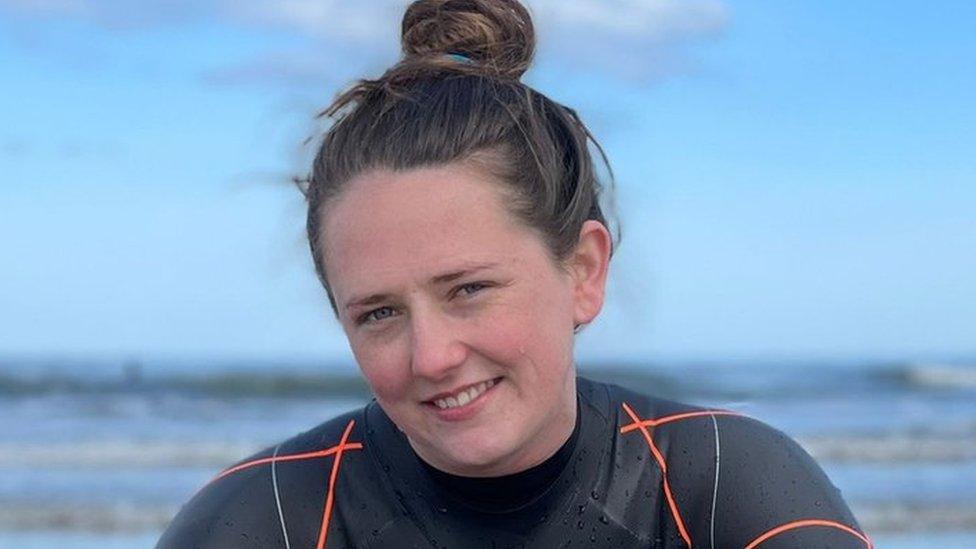Hampshire brothers beat dad's Atlantic rowing feat
- Published
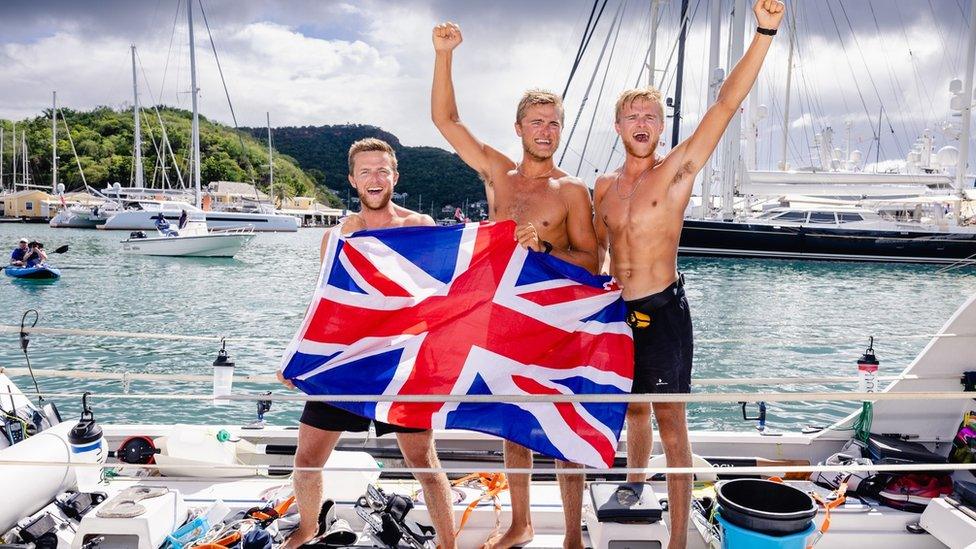
The brothers arrived in Antigua after 36 days at sea
Three brothers have completed a 3,000-mile (4,800km) transatlantic rowing challenge, following in the footsteps of their father.
Louis, 26, Felix, 26, and Finn Ambrose, 23, from Lymington, Hampshire, arrived in Antigua 36 days after setting off from the Canary Islands.
Their father, Hugo, completed the same expedition in 59 days in 2003.
Conservation charity Tusk, for whom they are raising money, said it was a "remarkable achievement".
The brothers were one of 43 crews, with a total of 127 rowers, taking part in one of the toughest challenges in sport - the Talisker Whisky Atlantic Challenge.
Under the team name Ambrose Buoys, they have so far raised more than £23,000 for the wildlife charity.
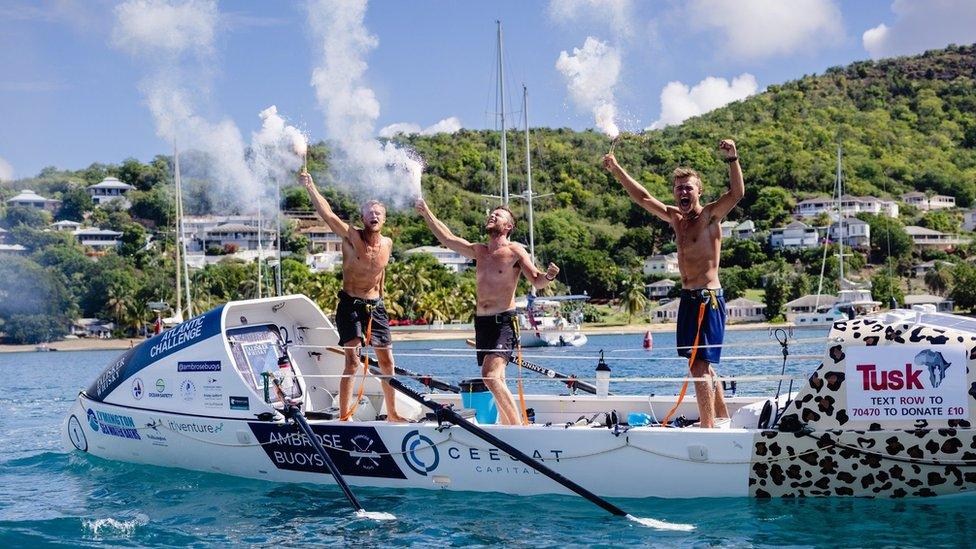
The brothers rowed into Nelson's Dockyard in Antigua
While at sea they celebrated Christmas and Felix's 26th birthday.
They arrived in to Nelson's Dockyard on Tuesday afternoon to be greeted by family members, including their father who, as children, they had bet £5 they could beat his time.
Hugo completed the Woodvale Atlantic Rowing Race, as it was then called, as part of a two-man crew in 2003.
The brothers paid tribute to the "massive" support they received during the crossing, with friends and family following their progress on social media.
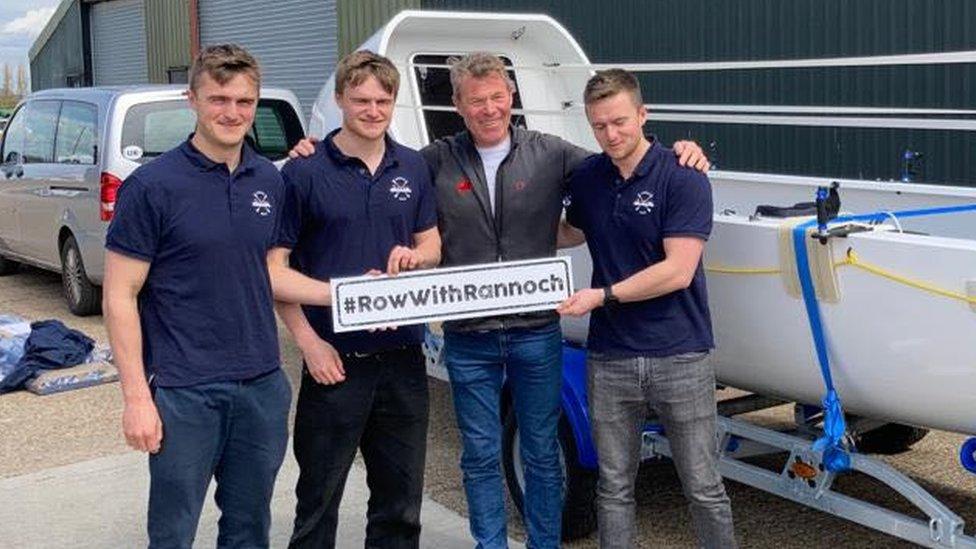
The brothers set out hoping to better their father's time
Felix said: "Every emotion you feel when you're out there is massively amplified so even the smallest message made such a difference when you're having a rough day."
Before they set off, Tusk's patron Bear Grylls said the trio were embarking on an "amazing challenge".
"The pain and the blisters won't last forever but the pride in what you are doing and who you're doing it for will," he added.
Clocking up about 80 miles (130km) each day, they rowed 24 hours a day - two hours on, two hours off - taking it in turns to row, eat, sleep and carry out essential boat maintenance.

Follow BBC South on Facebook, external, Twitter, external, or Instagram, external. Send your story ideas to south.newsonline@bbc.co.uk, external.
Related topics
- Published11 May 2022
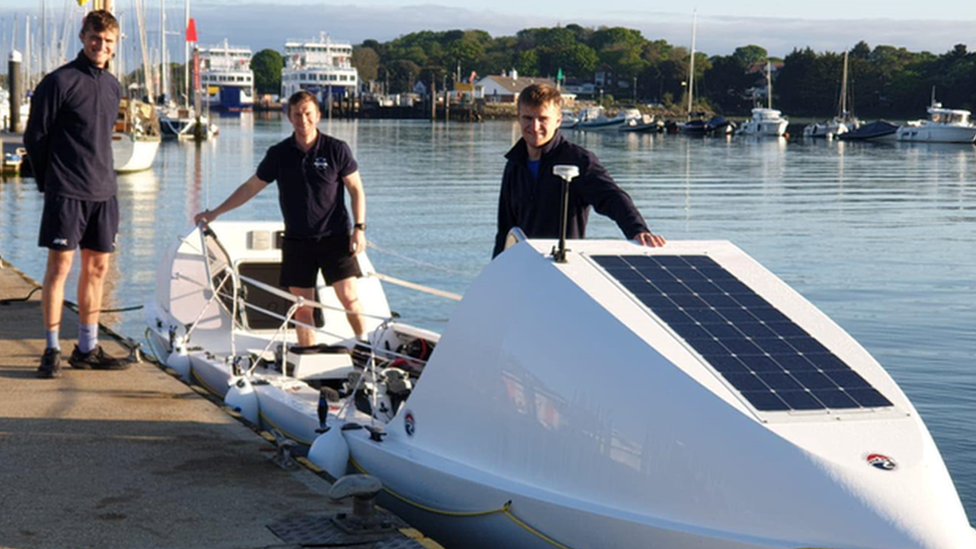
- Published25 March 2022
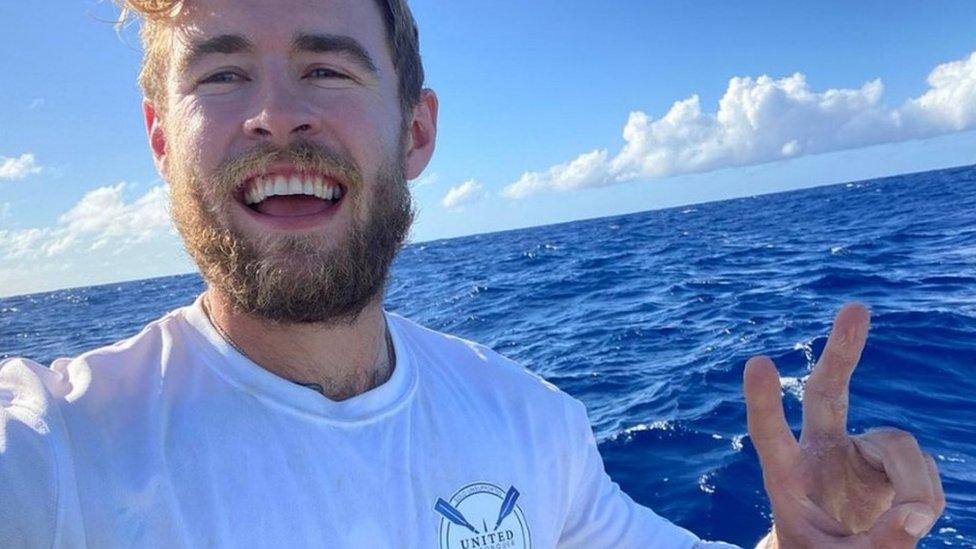
- Attribution
- Published24 March 2022
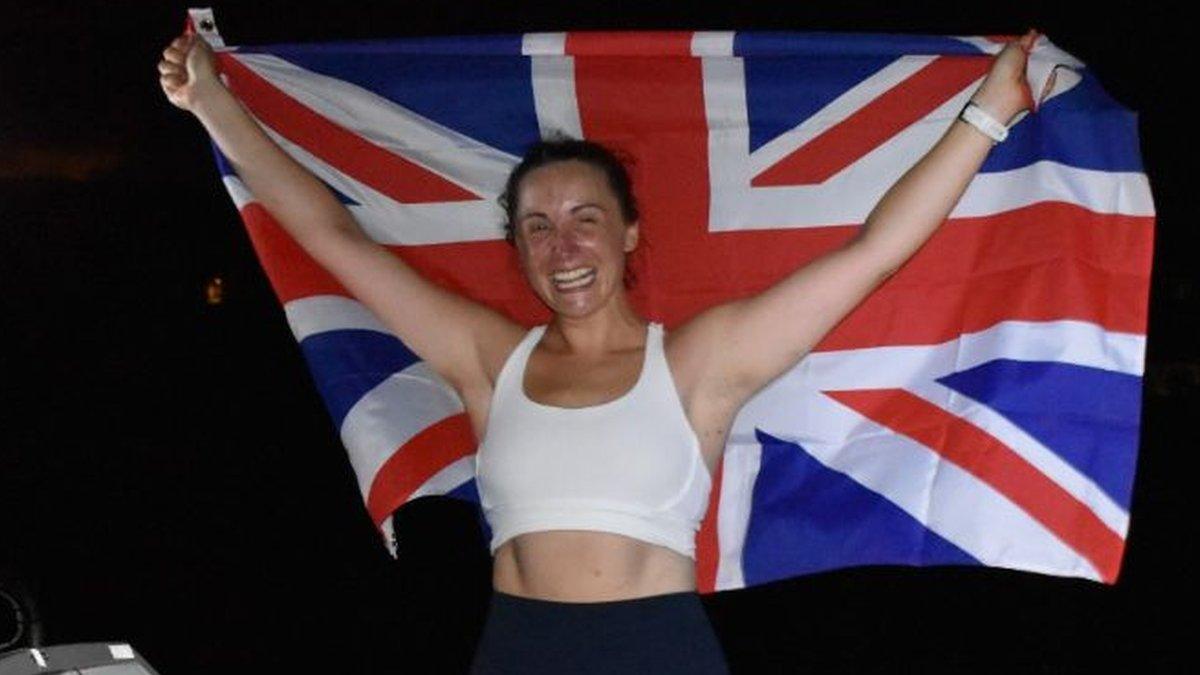
- Published11 April 2022
